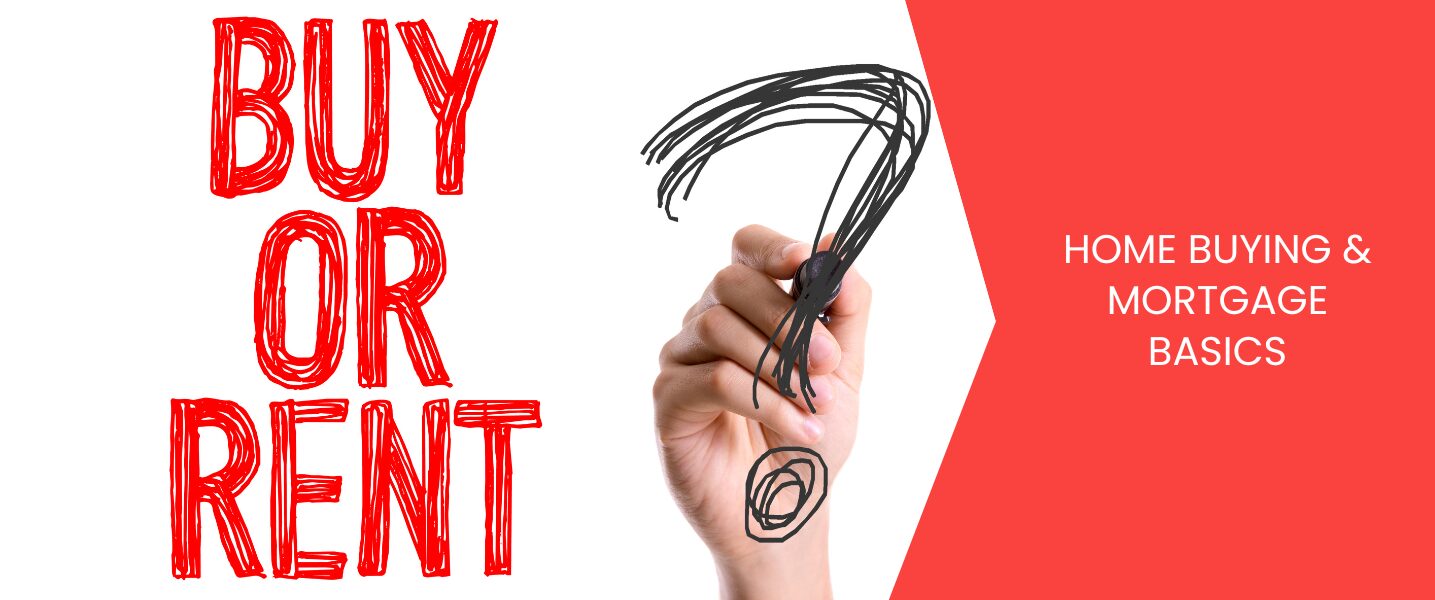Monthly Costs: Which Is More Affordable?
Renting: Typically, renting has lower upfront costs. You’ll need a security deposit and first month’s rent, and you won’t have to worry about paying for property taxes.
Buying: Depending on the market your mortgage payment may be lower, higher, or comparable to rental payment. Eventually, when your mortgage is paid off, you won’t have a monthly housing expense to worry about.
Pro Tip: Run the numbers to compare your monthly expenses for both options. Renting may be cheaper in the short term, but buying can often be more cost-effective over the long run.
Building Equity: Are You Investing in Yourself?
Renting: When you rent, your payments go toward your landlord’s investment. You don’t build any equity or ownership.
Buying: When you own a home, your monthly payments build equity, which is like a forced savings plan. Over time, your home may also appreciate in value, increasing your wealth.
Pro Tip: If you plan to stay in one place for several years, buying may be a smart way to grow your investment.
Flexibility vs. Stability: What Fits Your Lifestyle?
Renting: Renting offers more flexibility. If you need to move for work or prefer not to be tied down, renting allows you to relocate without the hassle of selling a home. But it can also be a double-edge sword. If your rent increases and it no longer fits within your budget, you may need to move. Other concerns are if your landlord plans to sell the home you’re living in or have other plans for the rental unit.
Buying: Buying provides stability and a sense of permanence. In the event you need to relocate, you have the option to sell or rent your property.
Pro Tip: Consider your long-term goals. If you’re unsure where life will take you in the next few years, run some numbers to see which would make more financial sense. If you need some help, we’re here for you.
Responsibility for Maintenance and Repairs
Renting: Maintenance and repairs are typically the landlord’s responsibility, making renting a hassle-free option. If you are fortunate to have a responsive landlord, it will make renting less stressful and financially beneficial. If you have a slumlord, then unfortunately you are left with footing the maintenance bill out of your own pocket.
Buying: As a homeowner, you’re responsible for all maintenance, repairs, and upgrades. These costs can add up, so it’s important to budget for them.
Pro Tip: If you prefer not to worry about unexpected repairs, renting might be the better option.
Tax Benefits and Financial Perks
Renting: Renters don’t get any tax benefits related to housing.
Buying: Homeowners can often deduct mortgage interest and property taxes, which can reduce their taxable income.
Pro Tip: Talk to a tax professional to understand how homeownership might benefit you financially.
Final Thoughts: What’s Right for You?
Choosing between renting and buying depends on your financial situation, lifestyle, and future plans. If you’re looking for flexibility and lower upfront costs, renting might be best. But if you’re ready to invest in your future and build wealth, buying a home could be the smarter choice.
Still unsure which option is right for you? Let’s chat and explore what makes the most sense for your situation!




